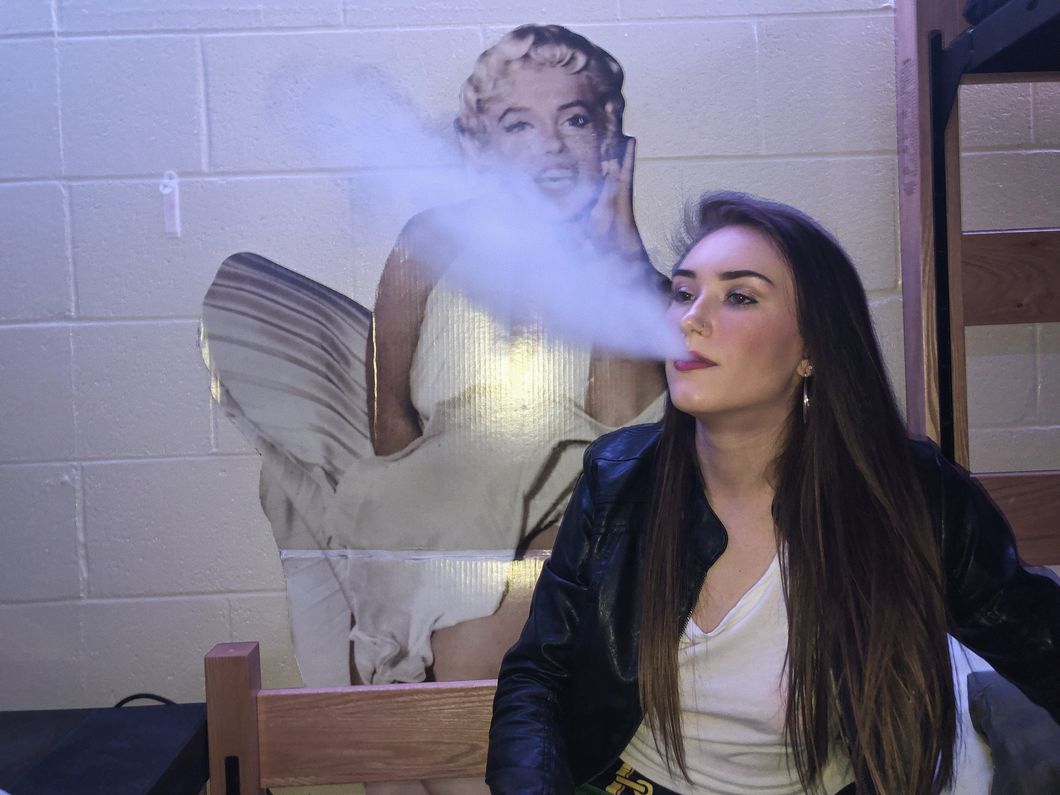With the increasing popularity of e-cigarettes among high school and college students, especially the brand "JUUL," there has been country-wide concern about nicotine addiction and the health effects brought on by vaping.
According to Google Trends, Oxford, Ohio (the location of Miami University) is currently the most popular city in the state for the Google search "Juul." Related topics that are frequently googled along with the keyword "Juul" are pods, electronic cigarette, popcorn lung, flavor and nicotine.
Camryn Kidder is a sophomore at Miami University who has been using an e-cigarette device since her freshman year of high school and has recently purchased a Juul. She uses the device as a social tool and finds that she can't go out without it.
"I bought my first Juul because they were really popular, but then I got really into it and got hooked," she said.
She also acknowledged that when she first started vaping, she used a very low nicotine level, but as she used it more, she kept buying higher levels because she didn't get the same buzz with the lower level.
"It's just so easily accessible, and it's so widely accepted on campus," Kidder said.
Juul devices and flavored pods have even been sold by local bars Uptown. Brick Street Bar advertises "Juul Pods Sold Here" on the front area of their bar just before students walk in. This creates easy access for students to buy a new pod while they are inside the bar instead of leaving to go to one of the many other places where pods are sold Uptown.
According to Truth Initiative, the use of e-cigarettes has increased from 0.6% in 2011 to 3.3% in 2017 for middle school students and from 1.5% in 2011 to 11.7% in 2017 for high school students. This increased use of e-cigarettes is a huge concern for parents due to the negative health effects that the chemicals and nicotine can have for people at such a young age.
The recent ban of flavored Juul pods is due to the public backlash over the increase in teen vaping. According to the New York Times, Juul Labs announced they would "suspend sales of most of its flavored e-cigarette pods in retail stores and would discontinue its social media promotions" in hopes of steering advertising away from teens.
On the Juul website, their mission statement says, "...We envision a world where fewer people use cigarettes," as well as stating, "...We believe that these alternatives are not appropriate for people who do not already smoke."
Although they advertise their product as something for smokers who want to quit using cigarettes, there is an ongoing investigation on claims that Juul was purposely marketing their product towards young people through social media after the device became popular in 2015.
"Our intent was never to have youth use Juul," said Kevin Burns, chief executive of Juul Labs, in a statement emailed to the New York Times reporters.
However, on Juul's official website, a quote from Men's Fitness magazine is advertised saying, "JUUL: The iPhone of E-Cigs," which is something that could appeal to younger people.
Along with the revocation of flavored Juul pods, the age to buy nicotine e-cigarette products has been raised to 21 in many cities, including Cincinnati. This age raise has been in process for a couple of years, but with the recent concern about teen vaping, there has been a lot more emphasis on it.
"Even if they raise the age and take away flavored pods, people are going to find a way to get around it," Kidder said.
She mentioned how there are many other types of e-cigarettes on the market with flavored juices that students could switch over to after the ban of flavored Juul pods. She also brought up that in Oxford "the age to buy nicotine products is still 18," meaning that most students at Miami are not affected by the recent age raise.













